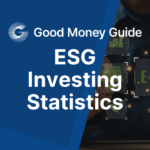- Government bonds, like UK Gilts and US Treasuries, are traditionally considered the safest investments.
- Cash is also seen as a safe haven, especially in uncertain times, offering capital preservation and liquidity.
- Fixed-term savings accounts offer a safer alternative with slightly better returns.
Investing is a trade-off between risk and reward; the higher the risk an investor takes, the bigger the reward they want to receive to compensate them for taking that risk.
Of course, there are times and circumstances when investors are less concerned about rewards and are more focused on capital preservation instead.
We are in one of those periods now as markets continue to react negatively to President Donald Trump’s trade tariff plans. Which have resulted in double-digit percentage falls in major equity indices across the US, Europe and Asia.
Even the UK FTSE 100 index has fallen by almost -7.00% over the last week as markets contemplate the prospect of a far-reaching recession.
There is no way to sugarcoat these moves, but at the same time, we do need to retain a sense of perspective. The Nasdaq 100 index is down by -14.50% over the last month, but over the last 10-years it’s up by +294.0%.
Nonetheless, this is a disconcerting time in the market and one in which investors will be looking for the safest investment, the asset class or instrument where their money will be insulated as much as possible from the ongoing turmoil.
Government Bonds
Traditionally, government bonds have been regarded as the safest investment, and indeed, US Ten-year Treasury Bonds, a global benchmark, have risen in value over the last month as money has flowed into the US dollar and, by extension, into Treasury bonds and notes. However, as the market rout continues, those gains seem to be slowly ebbing away.
UK Government Bonds or Gilts, as they are known, have also performed well during the sell-off.
The June 2025 10-year Gilt Future, which acts as a proxy for medium-term UK government bonds, has risen by +2.45% over the last 10-days.
The UK fared better than most economies in the tariff roster, incurring only a +10.0% surcharge on the country’s exports to the US, and sterling has held up relatively well as a result.
Cash is King
The relative strength of the British pound leads us on to what’s often seen as the safest asset class and that is cash.
Cash held in a current account typically receives little or no interest and, therefore, isn’t protected against the ravages of inflation.
However, there are many savings accounts which do pay interest. And, if you don’t mind tying your money up for a longer period, of say 12 months or more, then rates of interest get better.
It’s often the case that your money is still accessible when it’s in fixed-term savings; it’s just that you will lose some interest or pay a penalty if you withdraw it early. However, you should make sure you understand what the terms and conditions are before you commit.
Bargain Stocks and Shares
Well, for the moment, the old market adage about never trying to catch a falling knife seems appropriate. The whole narrative around global trade has shifted dramatically in the last week, which in turn has led to fears of a recession.
The imposition of tariffs at the levels suggested by President Trump would make some corporate business models untenable in their current format.
Particularly those of companies that manufacture goods in Southeast Asia and then sell them in the US. This includes household names such as Nike and Apple.
And the market is trying to work out what exactly the way forward is for these and other companies.
However, many investors have not been prepared to wait for an answer and have sold or are selling instead.
There will be bargains once we reach a new level of equilibrium in equity markets, that is, a level where buyers and sellers are matched off.
That said, visibility is very limited at the moment, and it’s not obvious who the relative winners will be or, indeed, over what timescale the market might choose to recognize that relative strength.
For example, UK-based drug maker AstraZeneca might be thought of as a possible winner going forward. Yet AstraZeneca is down by more than -8.00 % over the last week and -14.50 % over the last month.
Warren Buffet shrewdly sold down his holdings in Apple and Bank of America at the end of 2024, and Berkshire Hathaway is now thought to be sitting on a cash pile of $334 billion.
Cash provides a value investor like Warren Buffet with plenty of optionality, and he was able to drive some very hard bargains for his investment in similar circumstances after the Global Financial Crisis of 2008 and into the recession that followed.
Timing and patience are two requisite skills for successful investing following periods of market dislocation, and these are traits that Mr Buffet and his colleagues seem to have plenty of.

With over 35 years of finance experience, Darren is a highly respected and knowledgeable industry expert. With an extensive career covering trading, sales, analytics and research, he has a vast knowledge covering every aspect of the financial markets.
During his career, Darren has acted for and advised major hedge funds and investment banks such as GLG, Thames River, Ruby Capital and CQS, Dresdner Kleinwort and HSBC.
In addition to the financial analysis and commentary he provides as an editor at GoodMoneyGuide.com, his work has been featured in publications including Fool.co.uk.
As well as extensive experience of writing financial commentary, he previously worked as a Market Research & Client Relationships Manager at Admiral Markets UK Ltd, before providing expert insights as a market analyst at Pepperstone.
Darren is an expert in areas like currency, CFDs, equities and derivatives and has authored over 260 guides on GoodMoneyGuide.com.
He has an aptitude for explaining trading concepts in a way that newcomers can understand, such as this guide to day trading Forex at Pepperstone.com
Darren has done interviews and analysis for companies like Queso, including an interview on technical trading levels.
A well known authority in the industry, he has provided interviews on Bloomberg (UK), CNBC (UK) Reuters (UK), Tiptv (UK), BNN (Canada) and Asharq Bloomberg Arabia.
To contact Darren, please see his Invesdaq profile.



